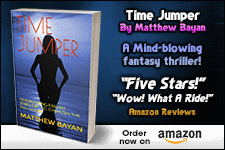So You're at This Writing Conference and an Agent Wants To Talk To You...
- by Matthew Bayan
- Jun 24, 2018
- 3 min read
How many times have you been told to develop an elevator pitch? A couple fast lines to capsulize your manuscript?
So, you spend days, maybe weeks, crafting the perfect three sentences. You develop a great tag line. You go to writing conferences. You get to use your pitch. You're thrilled.
An agent says, "The afternoon session doesn't start for a half-hour. Can we grab some coffee and talk about your book?"
OMG!! You suddenly realize you didn't think about what might happen after the elevator pitch. Maybe an agent would ask for you to send a query, but to have one actually want to sit down with you? You might even think of saying no. Your mind has become a blank page. Talk about writer's block.
Don't panic. Here are four questions that agents consistently ask. Have some idea of how to answer them and you will survive the aftermath of your elevator pitch.
1. Are you working on anything else? This is one of the standard questions at a pitch session, but the first time I was asked, I didn’t have an elevator pitch ready for the next manuscript I had in development. I fumbled through a description. I later wished I'd just said that I'm not working on anything else.
However, after a few more years of experience, I pitched a mystery to an agent at a writers conference. When the agent asked me what else I was working on, I changed gears and gave a quick blurb on a thriller. She requested both manuscripts. 2. Who are your favorite authors? The agent wants to see if you're a reader. Most writers are voracious readers. How else can you learn how a story is put together? It also shows that you're up on the marketplace. If you write in a particular genre, the agent wants to see that you know the genre and aren't writing something that's already been done. Imagine telling the agent you're writing a book about a boy enrolled in a school for wizards and being unaware of Harry Potter.
It's effective if you can name older and newer titles, showing your reading has breadth. 3. What kind of writer are you?
There's no set answer to this. You can take the conversation in any direction. Here's a time when you can show your understanding of the writing process and discuss elements such as character-driven vs. plot-driven stories.
Ask yourself why you write in a certain genre? Whether you're in front of an agent or not, this is a topic you should consider.
Why do you write? This can also open up areas for discussion with the agent.
4. Where did your story come from?
Here's another open-ended question which you can take in many different directions. The agent wants to see what drives you. Is the story based on a personal issue? Some crisis you've experienced?
I recently had a book review in which the reviewer said that one of my novels was "coming-of-age noir. Not for children." I had never thought of exactly that description and when I read it, I instantly thought that the review captured something deep down in me that I wasn't aware of even as I wrote the book. Yes, the main character is a teen, but I hadn't realized how film noir had influenced me to make a story with far greater adult ramifications.
It's this kind of understanding about the basis of your novel that the agent wants to hear about.
So, if you get an agent talking to you, relax. Have a conversation. Remember, agents are people too.
Well, most of them.










Comments